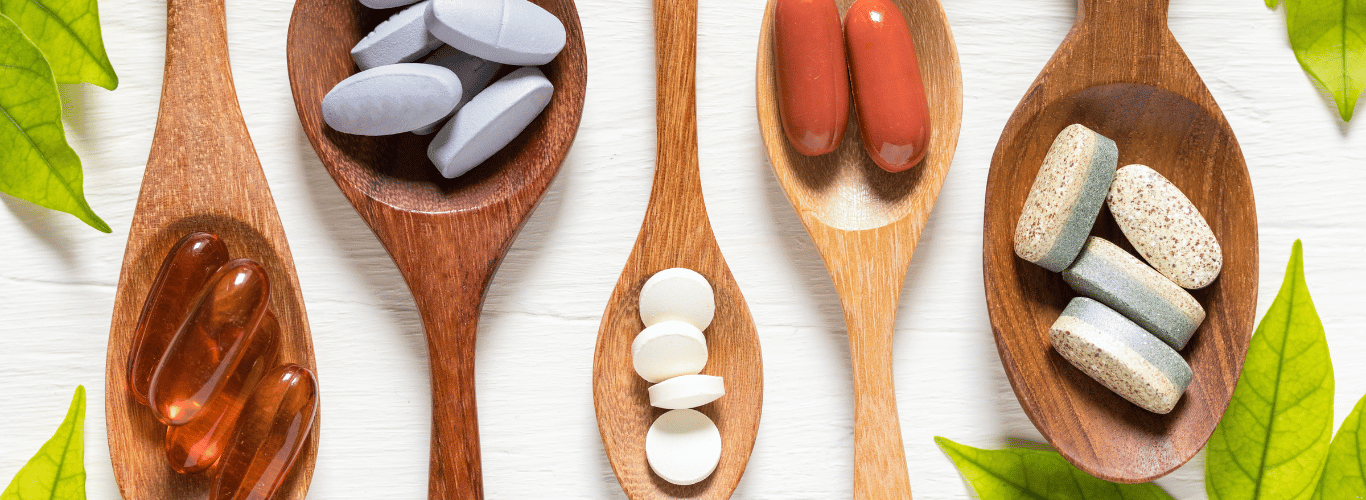Best Supplements for Hair Growth: Vitamins and More


Hair loss often starts beneath the surface—well before strands begin to fall. Even if you’re already using regenerative therapies like PRP or exosome treatment, nutrient deficiencies can block progress. Essential nutrients are required for healthy hair growth, and nutritional deficiencies in vitamins and minerals such as vitamin D, vitamin C, zinc, and iron can contribute to hair loss.
At Ageless Vitality Center, hair restoration is approached from the inside out. That includes evaluating key vitamins and minerals that feed your follicles. A balanced diet is foundational for overall health and hair health, providing the essential nutrients needed to support hair growth, while supplements are best used to address specific deficiencies. Below are evidence-based supplements often tested in clinical studies.
Maintaining overall health supports hair growth.
1. Biotin (Vitamin B7)
Biotin plays a critical role in keratin synthesis, the main protein building hair. Biotin supplements are widely marketed for hair growth but are only effective in cases of true deficiency. However, scientific evidence shows that deficiencies are rare and supplements typically only help in those with clinically low levels. Biotin deficiency is most commonly caused by a rare genetic disorder called biotinidase deficiency. A 2017 review concluded there is no strong proof of benefit in healthy individuals, though it may correct deficiencies. Too much biotin can interfere with lab test results and is not recommended for those without deficiency.
If you are undergoing microneedling with PRP for hair loss, ensuring adequate biotin intake supports the keratin rebuilding process. Biotin supplementation may help with thinning hair only if a deficiency is present.
2. Iron
Iron is essential for red blood cell oxygen transport. Iron deficiency is a common cause of hair loss and may require iron supplements for correction. Low iron can shorten the hair growth cycle and lead to visible thinning. High doses of iron supplements should only be taken under medical supervision due to potential side effects. Women, especially those over 40, are at higher risk.
Ageless Vitality evaluates iron levels via lab testing and often combines correction protocols with in-office therapies like PRP or exosomes.
3. Vitamin D
Low vitamin D has been linked to several types of hair loss, including alopecia areata. Folic acid and prenatal vitamins, which contain vitamin D, are also important for hair health, especially in women. A 2024 meta-analysis involving nearly 5,000 patients found significantly lower vitamin D and zinc levels in those with alopecia. Certain groups, such as pregnant women, have a greater risk of vitamin D and folic acid deficiency, which can impact hair growth. Vitamin D also plays a role in regulating the hair growth cycle via vitamin D receptor pathways. Both men and women benefit from maintaining adequate vitamin D and folic acid levels for optimal hair health.
Ageless Vitality uses functional wellness testing to identify and correct deficiencies as part of an integrative hair health plan.
4. Zinc
Zinc supports scalp health, cellular repair, and immune response. Zinc is often included in other supplements designed for hair health. It helps regulate the oil glands around follicles and maintains healthy inflammation levels. Research confirms zinc deficiency is strongly associated with alopecia areata.
Excessive intake of zinc or combining it with other medications can lead to adverse effects and should be monitored by a healthcare professional. When combining prescribed medications for hair loss with topical or oral therapies, balanced zinc is essential for follicle health.
5. Collagen and Amino Acids
Collagen peptides are a key ingredient in many hair growth supplements. Collagen provides the structural support needed for a strong, healthy scalp. It also supplies proline and glycine, key amino acids used to build keratin. Amino acids support keratin production, which is the primary protein in hair.
Collagen production declines with age, which is why some patients benefit from supplementation—especially when paired with vitamin C and hyaluronic acid. Collagen and amino acids help strengthen the hair shaft and promote healthier hair.
Adequate intake of these nutrients can support new hair growth and hair regrowth, while deficiencies may lead to abnormal hairs.
Nutrients Amplify Regenerative Treatments
Supplements alone rarely reverse hair loss. However, supplementing with a hair growth supplement can help address nutritional gaps and support treatment outcomes. But they do create a fertile environment for treatments like microneedling with PRP and exosome therapy. Hair growth supplements are formulated to provide targeted nutrients for promoting hair growth and stimulating hair follicles. Nutrient optimization ensures your follicles have what they need to rebuild and stay strong.
It is worth noting that not all supplements are equally effective, and consulting a healthcare professional or board certified dermatologist is recommended before starting any new supplement.
If you’re unsure what’s causing your thinning, review What Causes Hair Loss in Women and Men Over 40 to evaluate potential triggers.
Book a Hair Health Consultation Today
Hair restoration isn’t just about medical procedures—it’s also about what your body needs to regenerate. At Ageless Vitality Center, each plan includes lab testing, personalized nutrient strategies, and proven in-office treatments for full-spectrum regrowth.
Sources
- Harvard Health Publishing – Vitamins, minerals and hair loss: Is there a connection?
- NIH PubMed – Biotin Deficiency and Hair Loss Review (2017)
- Dermatology Advisor – Vitamin D, Zinc Levels and Alopecia Areata Risk
- Mayo Clinic Connect – Biotin and Hair, Skin Health Discussion
- Wikipedia – Vitamin D Receptor
- Wikipedia – Biotin







